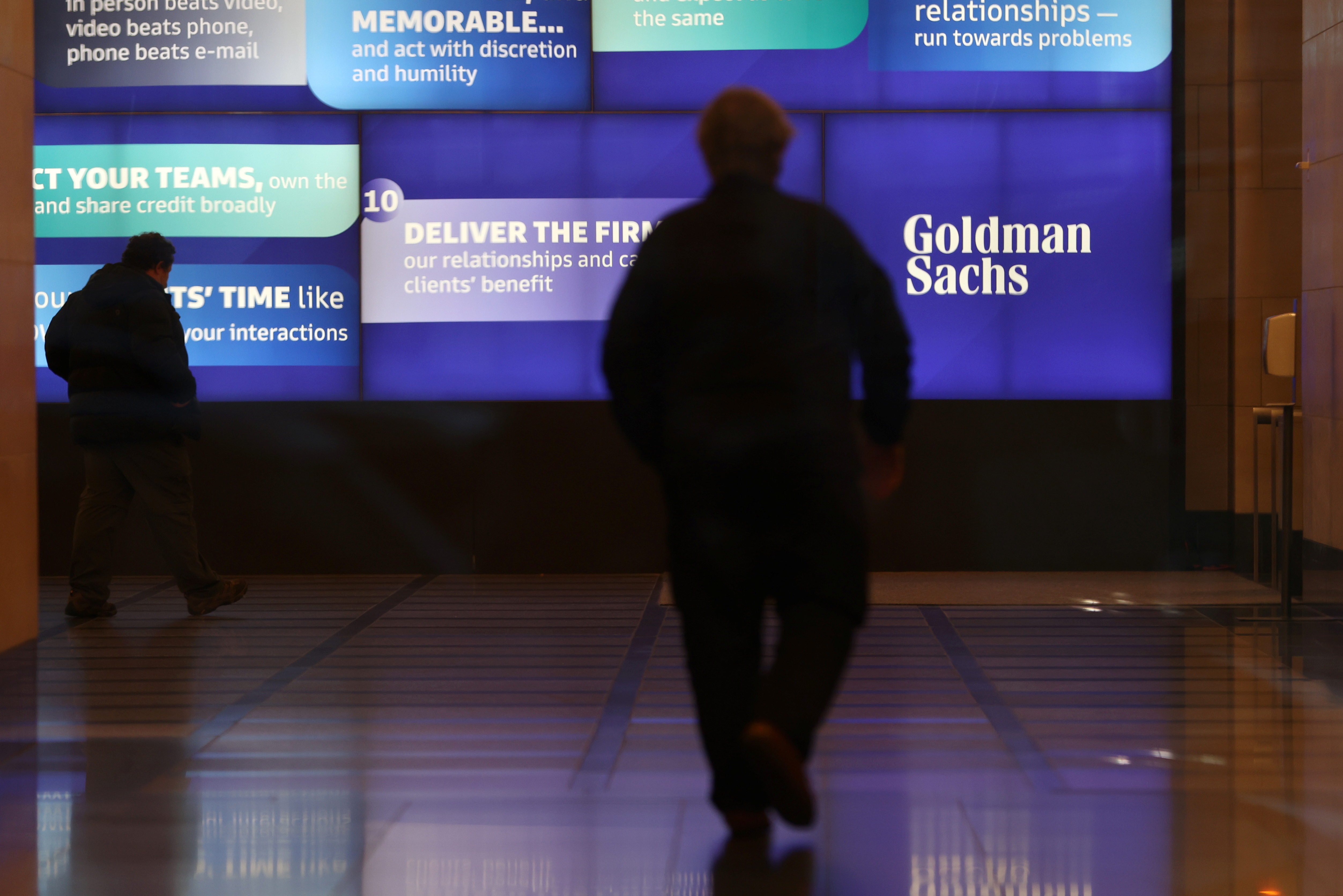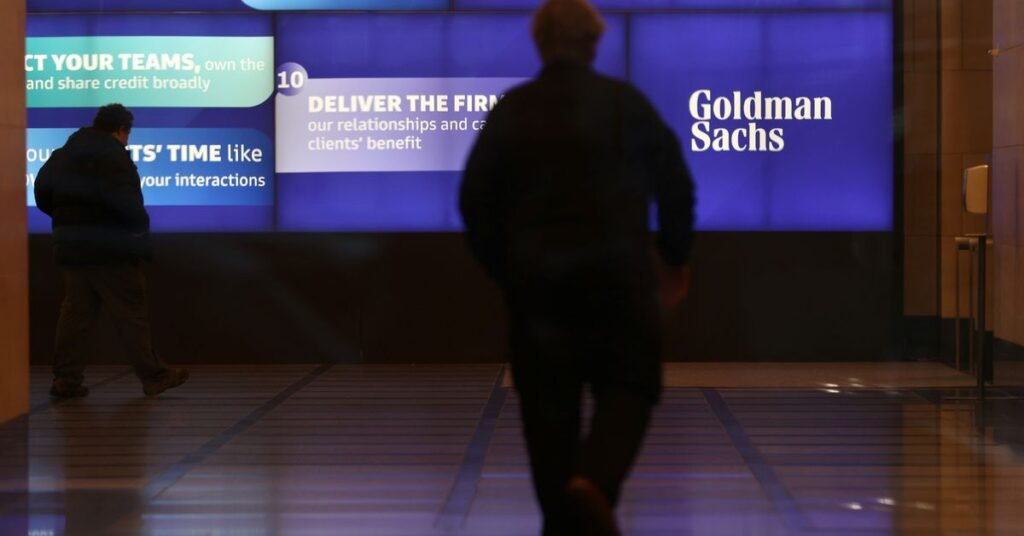
Individuals stroll within the Goldman Sachs world headquarters in Manhattan, New York, U.S., November 15, 2021. REUTERS/Andrew Kelly
Aug 10 (Reuters) – Goldman Sachs (GS.N) shareholders can't go ahead with a category motion alleging the financial institution misled buyers about its enterprise practices forward of the subprime mortgage disaster, a U.S. appeals courtroom dominated on Thursday.
The New York-based 2nd U.S. Circuit Court docket of Appeals dominated in three pension funds' long-running case accusing the financial institution of unlawfully hiding conflicts of curiosity when creating dangerous subprime securities, costing buyers greater than $13 billion.
The courtroom stated that the financial institution's statements about its potential to forestall conflicts of curiosity weren't carefully linked to Goldman being fined by U.S. authorities in 2010 over advertising and marketing supplies for a subprime funding product, and subsequently didn't have an effect on the inventory value.
A Goldman Sachs spokesperson stated the financial institution is “gratified by the Second Circuit's resolution on this case.”
A spokesperson for the regulation agency representing the buyers declined to remark.
The Arkansas Instructor Retirement System and others that bought Goldman shares between February 2007 and June 2010 accused the corporate and three former executives of securities fraud.
The buyers stated the financial institution's fraudulent statements stored its inventory value artificially excessive.
The plaintiffs stated that after they purchased Goldman shares they relied upon the financial institution's statements about its moral rules and inside controls towards conflicts of curiosity, and its pledge that its “shoppers' pursuits all the time come first.”
Goldman argued that these “aspirational” statements have been too obscure and common to have had any affect on the inventory value.
The case stemmed from Goldman's sale of collateralized debt obligations together with Abacus 2007 AC-1, which it assembled with assist from hedge fund supervisor John Paulson.
In 2010, Goldman reached a $550 million settlement with the U.S. Securities and Alternate Fee to resolve prices that it cheated Abacus buyers by concealing Paulson's function, together with how he made a $1 billion revenue by betting that the sale of collateralized debt obligations would fail.
The plaintiffs stated the share value would have been decrease if the reality had been identified in regards to the firm's conflicts of curiosity.
On Thursday, making use of a 2021 U.S. Supreme Court docket ruling within the case, the 2nd Circuit discovered that Goldman efficiently confirmed the statements didn't artificially inflate its share value as a result of they weren't sufficiently linked to the later disclosures.
Statements corresponding to “integrity and honesty are on the coronary heart of our enterprise” are too generic to have affected the value, the courtroom wrote.
The case is Arkansas Instructor Retirement System et al. v. Goldman Sachs, No. 22-484, 2nd U.S. Circuit Court docket of Appeals.
Reporting by Jody Godoy in New York; enhancing by Jonathan Oatis and John Stonestreet
: .

